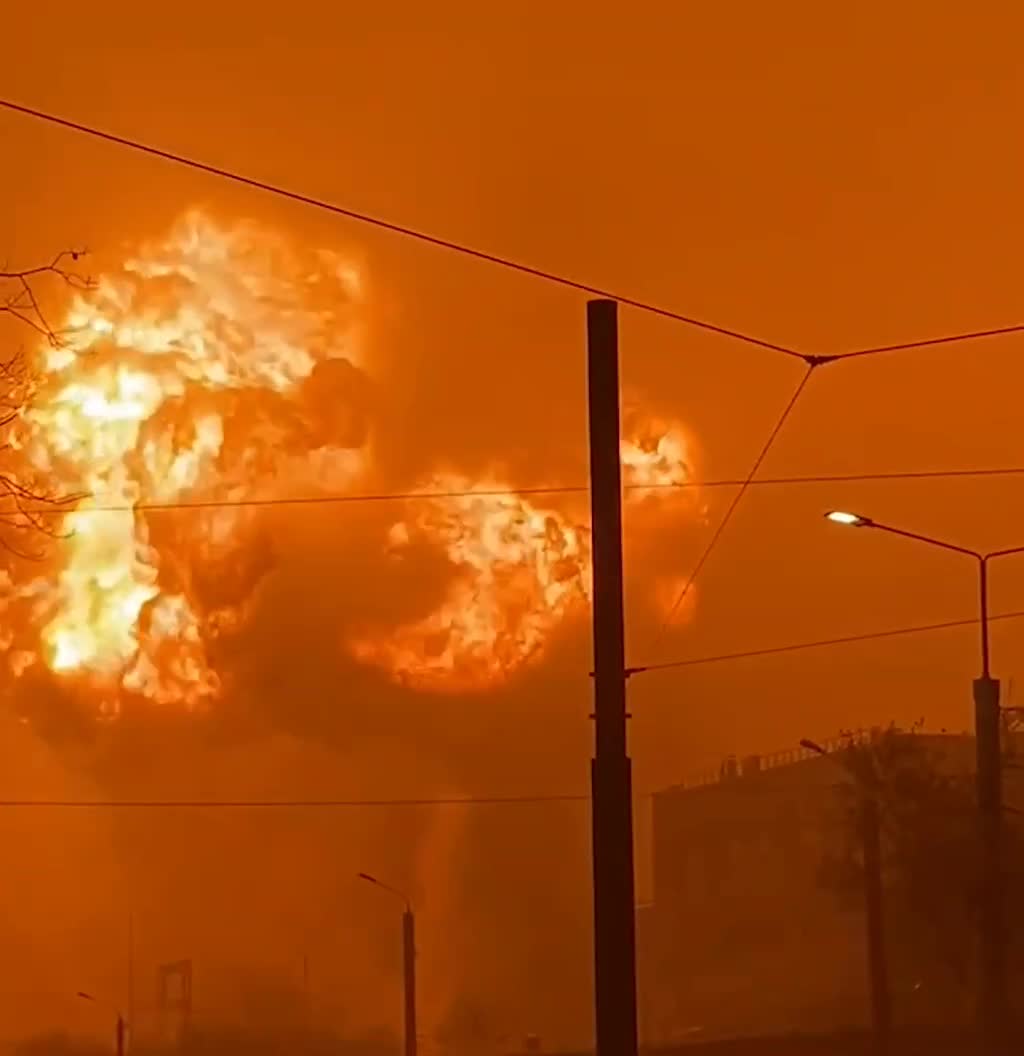It seems like every time a see one of these videos, some Russian is laughing in the background.
Putin doesn’t like transformers, so hopefully that’s fine by him.
If transformers in Russia are like transformers elsewhere, they are of limited supply and can’t easily be replaced, especially if it’s many of them.
That’ll hurt, and even if replaced, weaken them further.
The workers of Cybertron are gonna be puttin in some serious overtime.
Those poor chumps.
It had an unfortunate shmelting accident…
I like to think it was sabotage.
Removed by mod
Let me guess the official response…“worker smoking”?
I imagine with how many workers have been removed from the workforce (or in many cases, from existence) that there is a fuck ton of industrial and utility maintenance that just isn’t able to get done.
Entirely possible it was an effective strike of some kind… But also possible that critical infrastructure is eroding to the point that “catastrophic failures” are on the menu.
Not to mention far more increased demand putting increased wear on both machines and humans, which only makes your first point stronger
So apparently the Russians still smoke inside their factories, what a shame
Thank god they’re so stupid.
Not sure this has been the official “explanation” this time, but looking at it from a technical side, there isn’t normally anything in a transformer flammable enough to be ignited by a cigarette, even if you could drop it directly into the cooling oil (which you can’t: they are normally sealed). My understanding is that you need a sustained arc over several minutes of “normal” electric current, or several lightning strikes to heat up the oil enough to catch fire. That requires some major fault. I guess a suitable type of warhead could cause it eventually, but not immediately.
they are normally sealed
Normally
I wouldn’t be surprised if the issue turns out to be a comedy of errors.
- Damaged transformer is never fix. Due to
budget issuescorruption - Overtime it becomes more damaged until it represents a serious safety issue. See above
- Absolutely no equivalent of workplace safety laws. Sea above
- All resulting in a massive explosion
I wouldn’t be surprised if
Neither would I. Just saying that “smoking at the workplace” alone won’t suffice. Unlike in, say, a
fireworksmunitions factory.Well of course there is rules, and there are is what people do.
Paying attention is important.
- Damaged transformer is never fix. Due to
Removed by mod
Special Flammable Operation.
Poor Thomas.
how do you embed videos?

BLEVE?
transformers are filled with flammable oil, which is so similar to diesel some people even use it as such. moderate physical damage will cause short circuit, and this will provide enough energy to disperse and ignite that oil. no need for pressure buildup from fire
Can transformer cooling oil form flammable vapour? Maybe, I guess, if it’s hot enough, but I’m not sure. But when the transformer gets hot and explodes it may cause an oil spray fine enough to create a fireball, which may look similar. The first stage of a “proper” BLEVE is normally the “expanding vapor” cloud, which is visible as such, before it has mixed with air sufficiently (and/or reaches an ignition source) to burn and form the fireball. Then again, in smaller ones, and in the dark, the vapour cloud may be so short-lived that it cannot be seen.








